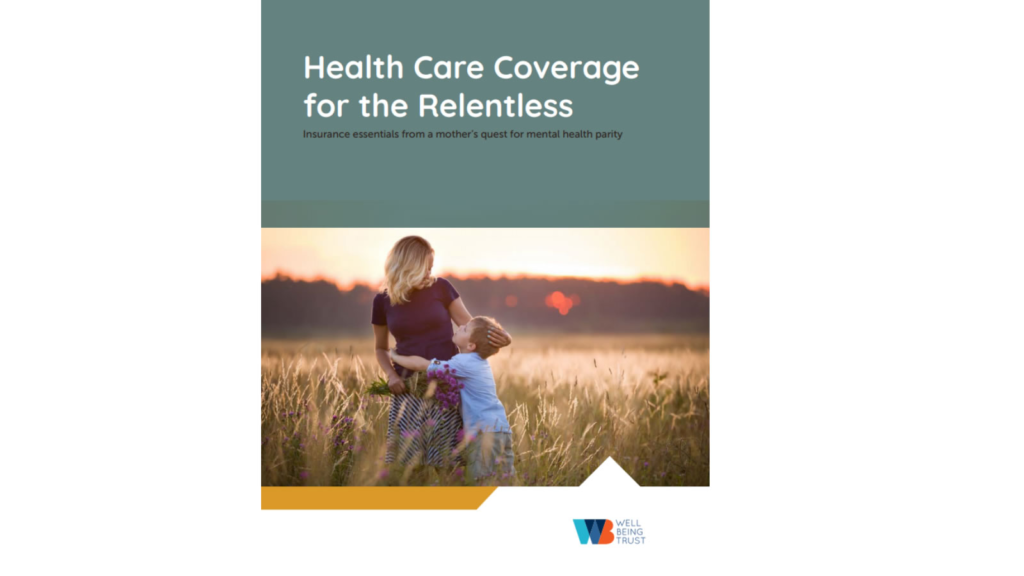A Mother’s Perspective: New guide gives parents the information they need to become more informed about mental health care coverage
OAKLAND, CA–– June 21, 2021 –– In light of new CDC data that found a 31% increase in mental health-related Emergency Department visits among children ages 12-17 between 2019 and 2020, Well Being Trust and a mother with lived experience, Carmen Bombeke, released today a guide that will help parents navigate the difficult terrain of health insurance.
Bombeke knows all too well what it is like to be the parent of a child struggling with thoughts of self-harm and suicide – and to face numerous obstructions during her family’s nearly 4-year journey to access quality, affordable care.
“When our son was in dire need of mental health care, we faced roadblocks every step of the way trying to connect him to effective treatment options,” says Bombeke, Senior Engineer for a small Maine-based engineering firm. “Part of the reason I wanted to help create this guide was to give parents a resource to help make sense of the incredibly complex insurance system, which is simply too much to take on while simultaneously managing the crisis that the care is needed for.”
Health Care Coverage for the Relentless: Insurance essentials from a mother’s quest for mental health parity recounts more details of the Bombeke family’s story, and likewise offers a guide for families to navigate health insurance as well as a glossary of health insurance terms every adult should know.
Health insurance, just like health care, is complicated so it should come as no surprise that only 4% of Americans know about their right to have their mental health benefits covered at the same level as their medical benefits. Congressman Patrick Kennedy was the lead author on the 2008 Mental Health Parity and Addiction Equity Act, which requires parity between mental health or substance use disorder benefits and medical/surgical benefits. However, despite this law being on the books for more than 10 years, challenges remain, which is why one of the guide’s greatest takeaways is its step-by-step guidance on what to do if your insurance company refuses to cover professionally recommended mental health or addiction care.
“There already exists federal policy that requires most health insurers to practice mental health parity – the problem is that this policy is rarely enforced,” says Benjamin F. Miller, PsyD, Chief Strategy Officer of Well Being Trust, a national foundation dedicated to advancing the mental, social, and spiritual health of the nation. “This guide gives people the tools they need to advocate for themselves while also holding health insurers accountable as we wait for much-needed federal and state action, and in turn bring increased attention to this still pervasive issue.”
“Parents of children struggling with mental health should not have to go through so much trouble to get safe, effective care. There are thousands of families facing these same obstacles,” concludes Bombeke. “The good news is that if we can connect and organize, we have the power to demand meaningful change so that in the future, fewer already devastated parents will have to suffer through the current injustices of the mental health care system.”
Watch this video with Carmen sharing details about the guide, and read the full guide here.
About Well Being Trust
Well Being Trust is a national foundation dedicated to advancing the mental, social, and spiritual health of the nation. Created to include participation from organizations across sectors and perspectives, Well Being Trust is committed to innovating and addressing the most critical mental health challenges facing America, and to transforming individual and community well-being. www.wellbeingtrust.org. Twitter: @WellBeingTrust
Media Contact:
Amy Shields
Communications Director, Well Being Trust
214-208-7942
Amy@wellbeingtrust.org






